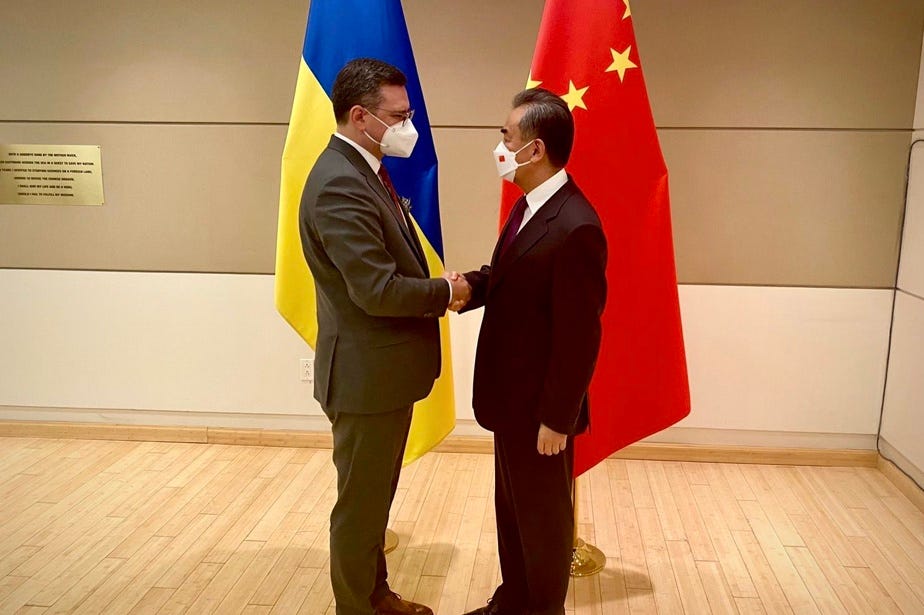Xi Jinping’s China Increasingly Weary of Vladimir Putin’s Drawn-Out War.
The fact that the Chinese Minister of Foreign Affairs met, on September 22, 2022, his Ukrainian counterpart, has nothing trivial.
The meeting in Samarkand on September 15-16, 2022, of the member countries of the Shanghai Cooperation Organization (SCO, founded in the early 2000s by China and Russia as a counterweight to Western international organizations) showed that Vladimir Putin still has friends in the world, despite his military invasion of Ukraine on February 24, 2022.
Russia…
Keep reading with a 7-day free trial
Subscribe to Sylvain Saurel’s Newsletter to keep reading this post and get 7 days of free access to the full post archives.




